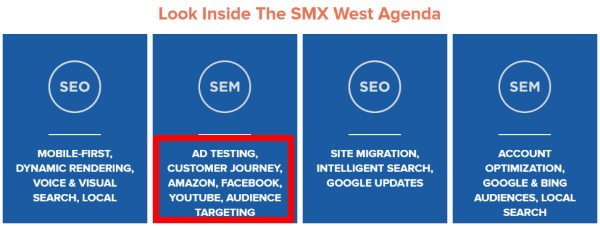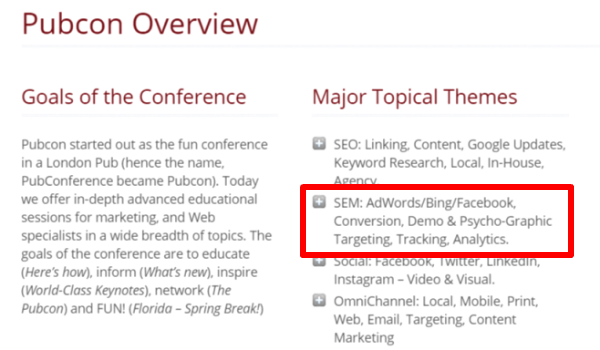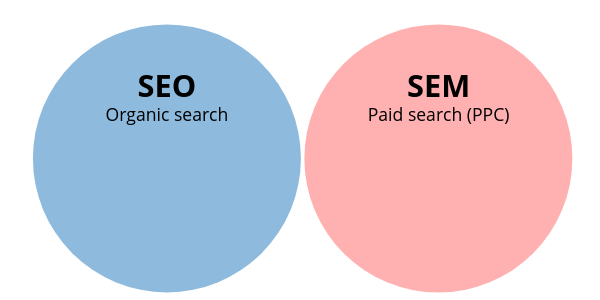
For a term that’s been around since 2001, there are still a great many people asking “what is SEM?”
It would seem that this should be an easy question to answer. After all, SEM has had nearly two decades to settle its definition. And yet, the question is still asked.
The term search engine marketing was popularized in 2001 by Danny Sullivan, then editor-in-chief of Search Engine Land. Danny wanted SEM to describe all search engine marketing initiatives, both organic and paid. Even today, you’ll occasionally see SEM used as a one-size-fits-all term for any marketing involving search engines.
Industry professionals and publications also throw around the term search marketing with ease. This might sound like the same thing, but it isn’t.
And of course, there is also the venerable search engine optimization (SEO) to consider. SEM, Search Marketing, SEO …
With all these terms, no wonder there is still confusion.
Understanding What SEM Is and Its Role in Digital Marketing
SEM stands for search engine marketing. As it is commonly used today, SEM describes only the money-backed portion of marketing through a search engine.
SEM involves buying PPC (pay-per-click) ads that display on a search engine results page (SERP for short). Ads may be placed through Google Ads, Bing Ads, or other search engines.
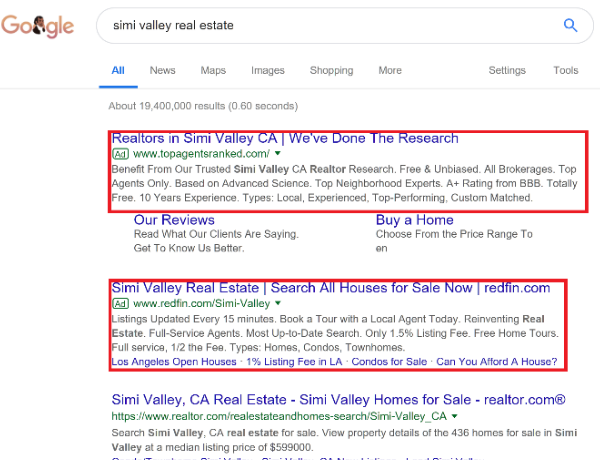

You know you’re doing SEM if …
When you give a search engine money to appear on their SERP, you’re doing SEM.
Common SEM concerns are cost per click and cost per acquisition (CPC and CPA). These indicate how much money is being spent on search advertising, and whether the return is worth it. As you begin to implement advertisements across search engines, consider how dynamic ads can supercharge your SEM campaigns.
Some other important terms used in the world of SEM include:
- Retargeting
- Geotargeting
- Dayparting
- Demographic targeting
- Mobile targeting
- and many more
Another part of what is SEM has to do with why SEM is important to search engines. SEM is the area where search engines make most of their money. As a result, paid search advertising takes precision so that ad dollars aren’t wasted. That makes SEM a marketing specialty of rapid change, one of the more exciting frontiers in search.
Does “Search Engine Marketing” Include SEO?
The short answer is no. SEM and SEO are now two different roles.
The longer answer is: “Not anymore, but it’s complicated.”
When Danny Sullivan spoke about SEM back in 2001, he used it as a catch-all to describe all efforts that encouraged website traffic from search engine results pages — including paid and organic search initiatives. According to Danny then, both SEO and PPC folks worked in search engine marketing. Simple. Clear. This definition was accepted by the industry at the time.
Yet in the 18 years since, the common understanding of the term SEM has shifted.
What caused this change? A few possible causes include Wikipedia’s page on SEM being entirely skewed toward paid efforts; Yahoo’s push of their PPC solution; and the general alphabet soup of confusing marketing acronyms. (For a detailed history of the term SEM, see Danny’s recap from 2010.)
Whatever the reason, the answer to the question “what is SEM” has definitively changed. SEM now means paid.
Today when you head to Search Engine Land, you’ll find SEM defined this way:
“SEM (Search Engine Marketing) is the process of gaining website traffic by purchasing ads on search engines.”
That clearly includes pay per click, local search ads, product listing ads, and all advertising efforts with regard to search engines.
What about “Search Marketing”?
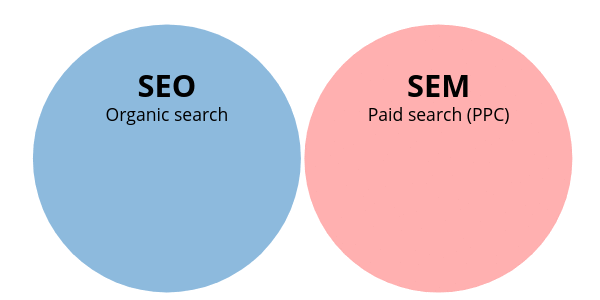

In place of SEM as an umbrella term, the industry coined the phrase “search marketing” (without “engine”).
Again looking at SEL, the definition of search marketing is:
“Search marketing is the process of gaining traffic and visibility from search engines through both paid and unpaid efforts.”
You may recognize that definition as Danny’s original meaning for SEM.
Defining SEM for the Future
Raise your hand if you think “SEM” is done evolving. Anyone?
I see signs that SEM will expand in meaning in the future.
In 2019, search marketing conferences are including more than just search engine advertising within the track called “SEM.”
Exhibit A: SMX West
The upcoming SMX West conference divides their tracks into SEO (organic) and SEM (paid). So that division is clear. You can expect to learn about organic ranking in the SEO track. In the SEM track, sessions focus on PPC topics like improving a Google Ads campaign.
What’s striking is the addition of advertising platforms besides Google and Bing. Sessions in the SEM track also talk about:
- YouTube
- Amazon
Exhibit B: Pubcon Las Vegas
I wondered if SMX was just an exception here. So I looked at another big marketing event, Pubcon.
It turns out that Pubcon’s “SEM” theme also covers more than just traditional search engines. Facebook advertising makes the cut. And there could be others that just aren’t mentioned in the summary description.
At least in the context of conferences, SEM can mean any variety of online ad placement. (This is somewhat
counter intuitive.)
No longer are sessions merely focused on Google and Bing. They cover non-search outlets that accept ads, too.
Will this lead to another shift in the definition of SEM? Or will another term entirely take over to encapsulate the always evolving and always exciting world of internet marketing?
The scope of what we do as search marketers has grown. So should our definitions.
Search marketing, in my view, now has to include more than just organic SEO and paid SEM in the major search engines. It also involves video, server issues, site performance, voice, YouTube, Amazon, and the list goes on.
One thing is certain — the search industry continues to develop. So too will the language we use to describe it.
If you find yourself asking what is SEM 10 years from now and discover that the answer has changed once again, at least you won’t be surprised.

